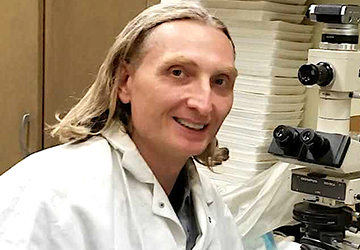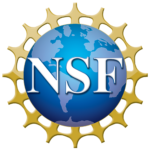Dmitry Brogun, a molecular evolutionary biologist and professor at Kingsborough Community College, has been teaching biology for many years. Most recently, his efforts have included teaching students how to utilize computational tools to identify, assemble, map and analyze genomes. To accomplish this, he recently used ACCESS allocations on Jetstream at Indiana University.

“The students are using these ACCESS allocations to learn how to do bio-surveillance on public metagenomic datasets,” Brogun said. “They are able to quickly identify fungal and additional bacterial, archaeal and viral sequences within very large datasets – which would not be possible on a local machine.”
Brogun said that these efforts reinforce the fundamentals of computational biology utilizing Next Generation Sequencing (NGS) technology that uses computational tools important in determining metagenomics data sets. The course has been designed to allow bioinformatics undergraduate students to work on real-world problems in the classroom as Brogun provides them with a base image. He then shows them how to start and stop virtual machines, how to retrieve data and how to analyze that data.
“We primarily use off-the-shelf informatics solutions, but the students also do some of their own programming in Python or R,” Brogun said. “Students find these projects extremely motivating and rewarding as the ACCESS allocations allow them to work with extremely large datasets.”
Being able to provide the students access to these compute resources means that they will be guaranteed the compute time needed to complete their work. Without ACCESS resources, the students would have to use their own computers or machines in the university library. Of course, that means throughput and compute ability would have been drastically reduced, and the instructors would have ended up spending a lot of time as systems administrators helping students install and troubleshoot the installation of software on their machines. Thanks to ACCESS, we are able to focus on our science – instead of being sys admins.
– Dmitry Brogun, Kingsborough Community College
At the end of each semester, the students submit reports via Github and prepare videos describing their discoveries. These are available here. If you think your classroom could benefit from High-Performance-Computing resources at no cost to you, visit the Allocations page to start the process today.
Project Details
Resource Provider Institution(s): Indiana University (Jetstream)
Affiliations: Kingsborough Community College
Funding Agency: NSF
Grant or Allocation Number(s): SOC230017
The science story featured here was enabled by the U.S. National Science Foundation’s ACCESS program, which is supported by National Science Foundation grants #2138259, #2138286, #2138307, #2137603, and #2138296.


